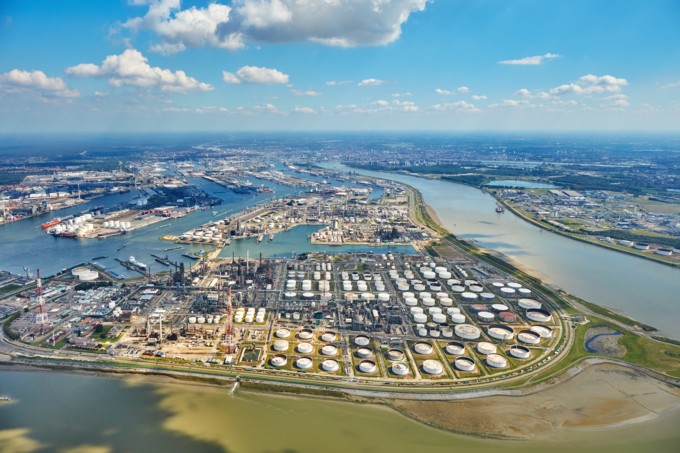As Europe’s refining and petrochemical markets undergo structural transformation, TotalEnergies’ Antwerp platform is positioning itself to remain viable through a deliberate blend of decarbonization, market adaptation, and operational restructuring.
In a recent update, the company confirmed it will shutter its oldest steam cracker by the end of 2027, while simultaneously advancing strategic investments in green hydrogen, sustainable aviation fuel (SAF), and battery storage — moves intended to secure competitiveness amid tightening margins and growing climate policy pressures.
Central to Antwerp’s decarbonization strategy is its partnership with Air Liquide on a 200 MW green hydrogen electrolyzer project, where TotalEnergies will reserve 130 MW of capacity via a tolling agreement. The plant is expected to produce 15,000 tonnes of green hydrogen annually, supplied by renewable electricity sourced from TotalEnergies’ OranjeWind offshore wind farm. The integrated setup is forecast to reduce Antwerp’s CO₂ emissions by 150,000 tonnes per year, a material contribution toward both site-level emissions targets and compliance with EU RED III transport-sector renewable quotas.
Scaling SAF Production in Response to Aviation Demand
Parallel to its hydrogen ambitions, the Antwerp platform will implement a 50,000-tonne annual SAF coprocessing unit in 2025. The facility will enable biomass and hydrocarbons to be processed simultaneously within existing refining infrastructure, offering a lower-carbon alternative for aviation customers under mounting pressure from regulatory frameworks like the EU’s ReFuelEU Aviation initiative, which mandates a progressive increase in SAF use at European airports.
Energy Storage to Support Grid Stability
In anticipation of higher renewable power penetration and associated grid balancing demands, TotalEnergies recently commissioned its largest European battery storage system at the Antwerp site. The 25 MW / 75 MWh facility addresses renewable intermittency issues, a capability increasingly essential as Belgium accelerates its wind and solar capacity targets. The storage asset also provides ancillary services to high-voltage grids, contributing to regional grid resilience.
Petrochemical Overcapacity Forces Strategic Retrenchment
Despite these forward-looking projects, Antwerp is grappling with market overcapacity in petrochemicals — particularly in ethylene production, where European demand has softened while supply remains elevated. The site’s oldest steam cracker, which lacked downstream integration within TotalEnergies’ polymer chain and depended on a third-party off-take agreement, will be permanently closed by end-2027 following the contract’s expiration.
The decision reflects broader challenges within Europe’s petrochemical sector, where aging assets face difficult economics against new, integrated mega-complexes emerging in the Middle East, China, and the U.S. Gulf Coast. The closure aims to consolidate Antwerp’s ethylene production at its newer, integrated cracker, improving cost efficiency and operational flexibility.
Significantly, TotalEnergies emphasized that the shutdown will involve no layoffs. Instead, the company has outlined plans for internal redeployment or retirement pathways for the 253 employees impacted. Formal consultations with employee representatives will commence later in April 2025, in accordance with Belgian labor law requirements.
Stay updated on the latest in energy! Follow us on LinkedIn, Facebook, and X for real-time news and insights. Don’t miss out on exclusive interviews and webinars—subscribe to our YouTube channel today! Join our community and be part of the conversation shaping the future of energy.
